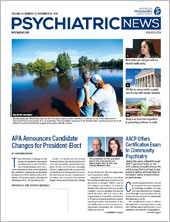On the 10th anniversary of the signing of the Paul Wellstone and Pete Domenici Mental Health Parity and Addiction Equity Act, a technical report evaluating each state on its statutory compliance with the law found that just seven states earned a score of average or better, and 32 states received a failing grade, according to the Kennedy Forum, which published the study.
The 2008 federal law prohibits insurers from imposing limitations on mental illness and substance abuse benefits not applied to medical/surgical benefits. In 2010, the Affordable Care Act (ACA) strengthened the parity mandate by making behavioral health care “an essential benefit” in all individual and small-group health plans.
The report follows the Trump administration’s move last August to expand the sale of so-called “skimpy” individual plans that are not required to provide the ACA’s essential benefits, which advocates are concerned rolls back the clock on mental health parity.
While the responsibility for enforcing mental health parity is shared by the federal government and states, in practice most parity compliance monitoring falls to states, since they oversee a larger share of the insurance market, including fully insured group plans, individual plans, and smaller employer-funded plans.
For the study, attorneys studied parity laws in each state, using a quantitative and systematic coding methodology that assigned points based on inclusion of specific statutory language, with a maximum possible score of 100. The seven states that received a grade of C or better included Illinois (A, 100 points), followed by Tennessee (C, 79), Maine (C, 76), Alabama (C, 74), Virginia (C, 71), New Hampshire (C, 71), and Colorado (C, 70). The report was issued along with one-page report cards for each state and a separate consumer guide.
Authors praised the comprehensive parity-reporting law in Illinois signed by its governor in August. The law requires Illinois insurers to submit detailed reports to state regulators demonstrating compliance with parity laws, particularly with regard to provider network adequacy, prescription drug formularies, and step-therapy protocols, all known as nonquantitative treatment limits (NQTLs). The law also requires the creation of a website that will provide reports to Illinois consumers on insurers’ compliance with parity. Insurers will also need to provide expanded access to medication-assisted treatment (MAT) for substance use disorder, and public school districts will now be required to offer behavioral health coverage in their employee health plans.
Common gaps in existing state parity laws included how mental health and substance use disorders (MH/SUD) are defined, how they are covered, and how compliance is monitored and enforced, explained Glenda Wrenn, M.D. She co-wrote the report and presented the findings at a Kennedy Forum event held in the U.S. Senate on October 3, the 10th anniversary of the signing of the parity law. Wrenn called for states to use the best available evidence when defining what mental health/substance use disorders should be covered by requiring coverage of all disorders listed in DSM-5, with no random exclusions of conditions.
State laws should also mandate behavioral health coverage to prevent insurers from taking advantage of a federal parity law loophole by not offering a mental health benefit at all, Wrenn added. However, the real issues are with the implementation of the law and its enforcement, she added. States should require their monitoring agencies and insurers to periodically report on claims actions to ensure parity compliance and give consumers needed transparency.
For parity to be achieved, state legislatures must do their part by enacting legislation that establishes clear pathways for parity monitoring, reporting, and enforcement activities, according to the report. Every state in the nation—except Wyoming—has adopted one or more laws supporting mental health parity. Despite this progress, the promise of parity remains elusive for many.
The authors found that 32 state statutes received a failing grade of F for mental health parity, with the seven lowest scoring states as follows: Wyoming (F, 10), Arizona (F, 26), Idaho (F, 36), Indiana (F, 38), Alaska (F,43), and Nebraska (F, 43).
One limitation of the report is that the scores for each state were derived solely from their parity laws; however, the report also discusses the importance of state regulatory and enforcement actions, which were not factored into state scores. “In fact, among the many states assessed with a low score … policymakers and advocates have leveraged regulatory and enforcement tools to help advance parity.”
For example, the authors gave New York a score of only 53 for its parity laws but pointed out that its state attorney general has optimized enforcement of parity by investigating insurers’ behavioral health claims processing and by levying more than $3 million in fines against insurers. In other actions, the state ordered two insurance companies to stop violating the parity law with regard to medication-assisted opioid treatment (
Psychiatric News,
http://apapsy.ch/Cigna and
http://apapsy.ch/Anthem).
“Conversely, some states for which the statute was assessed as having a higher score are experiencing a high rate of parity violations, lack of enforcement by regulators, and poor access to care,” the report added.
“Particularly with the concurrent alcohol, opioid, and suicide epidemics ravaging states across the country, states must make parity enforcement a priority in order to increase access to critically needed treatment,” the report concluded.
“Robust state parity enforcement will not only save lives but also benefit state budgets by encouraging commercial insurers to pay for treatment to which beneficiaries are entitled, reducing costly late interventions and cost shifts to payers such as Medicaid.” ■
“Evaluating State Mental Health and Addiction Parity Statutes: A Technical Report” and the accompanying consumer guide can be accessed
here.

